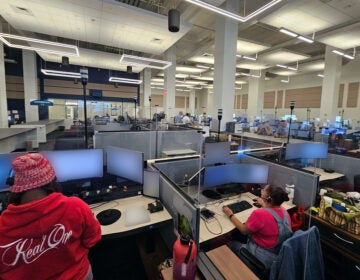Manayunk civic looks to West Philadelphia-based group for its approach to a problematic rental crowd
As part of an exploration into mechanisms for managing an increasing and sometimes problematic rental population, the Manayunk Neighborhood Council invited officers with a West Philadelphia-based civic group to its monthly meeting Wednesday night to speak about its approach to the issue.
Mike Jones and George Poulin, president-elect and president respectively of the Powelton Village Civic Association, were on hand for MNC’s final general meeting before the summer break.
PVCA covers a 20-square-block span that is roughly bounded by Mantua Avenue, West Powelton Avenue and Drexel University’s campus.
Similar to Manayunk, it has a huge student population that almost exclusively rents in the neighborhood. Less than 15 percent of the neighborhood’s approximately 5,000 residents are home owners.
“We’ve got a bunch of blocks that have one, two, maybe zero homeowners,” said Jones, who moved to the area in 1998.
Public safety ambassadors and maintenance crews
To help address issues that naturally arise as a result of having such a young, party-prone demographic, PVCA became part of the University City District, a special services district created in the mid-90s that’s dedicated to neighborhood quality of life issues.
It’s currently one of five member organizations. The Spruce Hill Community Association, Walnut Hill Community Association, Garden Court Community Association and Cedar Park Neighbors are also under UCD’s umbrella.
“It basically came out of what the institutions, Drexel largely, were perceiving as a crisis in the neighborhoods that surrounded them,” said Jones. “They really thought they needed to engage in a way that they hadn’t in the past.”
A pair of student murders in the neighborhood was part of that impetus, noted Jones.
The USD has public space maintenance crews that clean and collect trash five days a week in the neighborhood. There are also public safety ambassadors that patrol the streets throughout the week from 10 a.m. to 3 a.m.
The ambassadors can’t hand out citations, but are linked into city and university police and can turn over a case accordingly.
“They pick up where, frankly, the police don’t respond,” said Poulin, a nine-year resident. “If we call 911 for a group of students with open containers walking down the street, the police may not respond or if they do, they’ll respond in an hour when the students have gone somewhere else.”
Poulin noted that that bridge applies to other city services as well, including park maintenance and cleaning.
The USD now also has a liaison with the city’s Department of Licenses and Inspection to handle issues around problem properties.
A ‘mutually beneficial’ system for residents and local universities
Its $8.2 million budget is funded through area institutions – among them, University of Pennsylvania, Drexel University and Children’s Hospital of Philadelphia – and foundation grants.
Individual properties are not assessed as part of that budget.
Though not a perfect system overall, both Jones and Poulin maintained that the UCD has gone a long way in helping to keep the neighborhood a pleasant place to live.
“It’s been mutually beneficial for us as a neighborhood and the universities as stakeholders,” said Poulin.
Manayunk currently has a special services district in place, but it focuses entirely on the neighborhood’s business community.
Members of MNC are interested in possibly expanding the scope of the Manayunk Special Services District or forming a separate entity that addresses community or residential-based concerns.
The majority of members expressed interest in continuing conversations around the issue.
WHYY is your source for fact-based, in-depth journalism and information. As a nonprofit organization, we rely on financial support from readers like you. Please give today.




